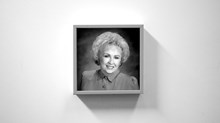Pat Robertson has again made headlines over his stance on drug enforcement, offering his unequivocal support for the decriminalization of marijuana.
"I really believe we should treat marijuana the way we treat beverage alcohol," Robertson told the New York Times. "I've never used marijuana and I don't intend to, but it's just one of those things that I think: this war on drugs just hasn't succeeded." His stance was similar to what he said on "The 700 Club" last week and other comments he made in 2010.
Robertson's position is unlikely to find much support among evangelicals. A March 2010 survey by the Pew Research Center for the People & the Press found that 41 percent of Americans think that marijuana should be made legal.
Three-quarters of Americans supported the use of marijuana for medical purposes. But support for decriminalizing marijuana was low among evangelicals. While 64 percent approve of medical marijuana, only 25 percent of white evangelicals said marijuana should be made legal, compared to 42 percent of Catholics and mainline Protestants. Those unaffiliated with any religion were the most supportive of decriminalization, with nearly two-thirds supporting legalization.
While this is not the first time Robertson has taken this stance, he ran for president as a hard-liner on drug enforcement. After losing his bid to be the Republican presidential candidate in 1988, Robertson said at the Republican National Convention that the U.S. should be "a city set on a hill … where the plague of drugs is no more and those who would destroy and debase our children with illegal drugs are given life sentences in prison with no chance for parole."
More recently, Robertson said over-incarceration in the U.S. is due to a "liberal mindset to have an all-encompassing government." Many policy experts would agree that—for good or ill—there are many more prisoners today due to the nation's drug laws. Most of these laws, though, were advocated most strongly by conservatives. Billy Atwell of the Chuck Colson Center for the Christian Worldview opposed a 2010 California effort to treat marijuana just like alcohol. "There is no legitimate moral or pragmatic reason to legalize a drug that destroys the lives of those addicted to it and that fuels crime and corruption," Atwell said.
In December 2010, Robertson voiced his support for decriminalizing marijuana and finding alternative solutions for drug users. He told his audience on the "700 Club" that the war on drugs was a successful political strategy but was a policy failure.
"It got to be a big deal in campaigns: 'He's tough on crime,' and 'lock 'em up!' That's the way these guys ran and, they got elected. But, that wasn't the answer," Robertson said.
Some drug laws are being softened. Congress lowered the sentencing on crack cocaine in 2010, bringing prison terms more in line with punishment for powder cocaine. Many religious leaders, including evangelicals, supported the change because of the disproportionate punishment of African-Americans under the law.
Last year, CT asked three authors to weigh in on medical marijuana. And in 2005, we rounded up Christian leaders' opinions about the Supreme Court's decision on medical marijuana.

Support Our Work
Subscribe to CT for less than $4.25/month


















